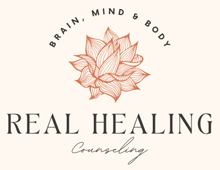Complex Trauma
So what is complex trauma? Complex trauma happens repeatedly over time and usually in the context of relationships in our childhood.
How complex trauma shows up…
You often feel anxious, as if something bad is going to happen. Or maybe you feel depressed and shut down emotionally.
You have a tendency to live and feel in the extremes, often going from zero to 10. There are times you feel small, scared, helpless and overwhelmed.
You may try to avoid your feelings, out of fear that if you felt them you’d lose control.
It’s easy to get comfortable in the chaos, and believe it is normal. You may feel uncomfortable or bored when things are balanced and calm. You anxiously wait for the next shoe to drop.
You beat yourself up when you make a mistake.
You may believe that there is something inherently wrong with you.


You may find yourself in relationships that are unpredictable and feel like you are on an emotional rollercoaster. You may find stable people boring and unattractive. You may feel frustrated that the same thing keeps happening in every new relationship you’re in. You may feel really anxious when there’s separation in your relationship or perhaps you start to pull away when the relationship deepens.
You may believe that people are unreliable and untrustworthy, you may struggle with trusting others. You may over-function in relationships and keep people at an arms length. You despise asking for help.
Complex Trauma Symptoms
How Therapy Can Help
Therapy for complex trauma can help you:
Regulate your emotions and moods
